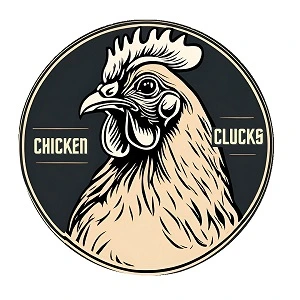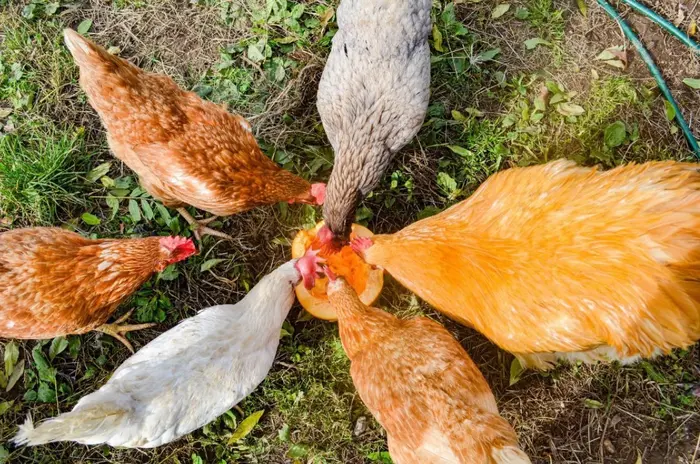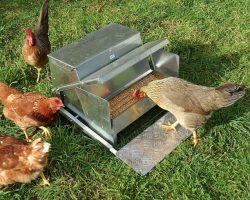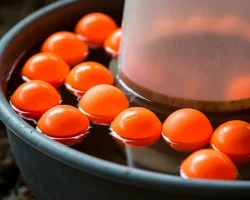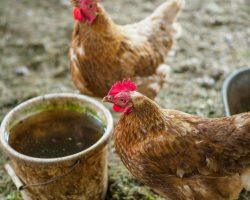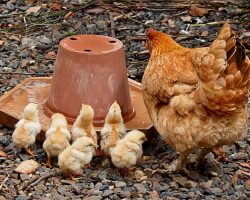As a chicken nutritionist and enthusiast, I know firsthand how rewarding it is to see my flock pecking away at the best chicken treats that I give them. Over the years, I have learned the importance of selecting high-quality treats that complement their diet, ensuring they receive the right balance of vitamins, minerals, and protein. A little extra snack from time to time is a wonderful way to enrich their environment, but it is just as important to be aware of what you are feeding them.
I would like to talk about the best chicken treats, as well as what you can safely feed your chickens and what foods to stay away from.
The 90/10 Rule: Balancing Feed and Chicken Treats
Chickens are not fussy eaters, so they’ll happily gobble up whatever we give them. But, it’s up to us to feed them the right things. Ultimately, it is all about balance. As a chicken nutritionist, I advise to stick to the 90/10 rule. In short, this means 90% of a chicken’s diet should be made up of high-quality chicken feed that has been specially formulated to provide them with the essential vitamins, minerals, and nutrients that they need to thrive. Chicken treats should make up no more than 10% of their total intake.
Why? Because I know complete feed recipes are complex and balanced, and I am sure they contain all the right nutrients. I have made feed recipes for millions of chickens, so trust me on this. Once hobby chicken keepers start to overfeed treats, their chickens either do not get enough essential nutrients, or too much. This leads to unhealthy hens and a decrease in egg production.
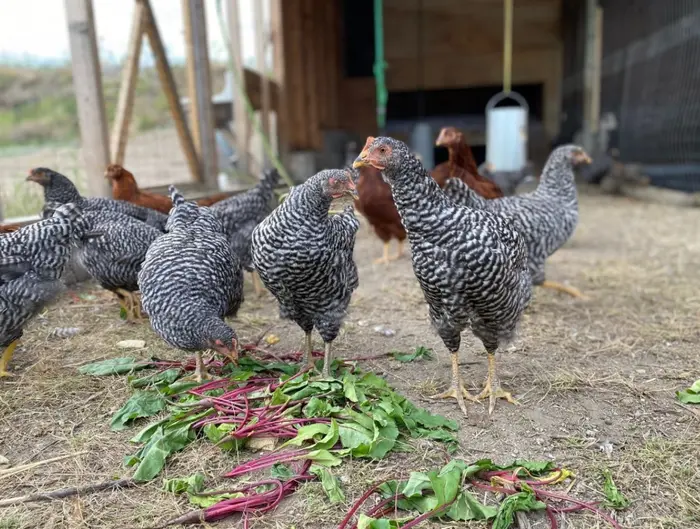
What Can Chickens Eat?
Chickens enjoy a variety of foods. Here is a breakdown of the foods that your flock can forage on safely:
Fruits and Vegetables
- Leafy greens like kale, lettuce, and spinach
- Root vegetable tops such as carrot tops and beet greens
- Fruits like berries, apples (without seeds), and melons
- Cucumbers, zucchini, and pumpkins
Grains and Seeds
- Whole grains like oats, barley, and quinoa
- Seeds such as sunflower, flax, and pumpkin seeds
- Cooked brown rice or quinoa
Protein Sources
- Dried mealworms are always a favorite!
- Earthworms (a clever option for free-range chickens)
- Scrambled or boiled eggs (fully cooked and chopped up)
Herbs
- Oregano which helps to support immune health.
- Parsley is extremely rich in vitamins.
- Cilantro and basil
Click here for a complete list fo what chickens can eat.
What NOT to Feed Chickens
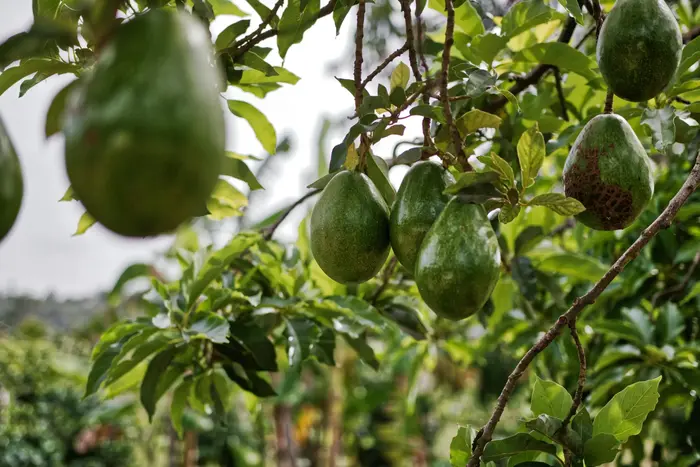
While your chickens thoroughly enjoy their chicken treats, some foods should never be given to your flock.
Toxic Foods
- Avocado peels and pit: While chickens can eat avocado flesh, any other part of the avocado can be toxic. The peels contain persin which can cause breathing and heart problems. Only give your flock the flesh of an avocado.
- Green potatoes and tomato leaves: These contain solanine which can cause weakness, diarrhea, and even paralysis in chickens.
- Rhubarb: The leaves contain oxalates which are toxic to chickens. Don’t ever feed your chickens rhubarb, neither raw nor cooked.
- Chocolate and caffeine: A great treat for humans, but not for your flock! Both of these are toxic and can be deadly!
- Raw beans: These contain hemagglutinin, which is extremely dangerous to chickens as it can block their digestion and even result in death.
- Onions and garlic: While these can be given to your chickens if they are given in large doses, they can cause digestive issues and affect the flavor of your flock’s eggs.
Other Harmful Foods
- Moldy or spoiled food: Humans do not eat moldy or spoiled food, so why should your chickens? Food that is off can lead to sickness and health problems.
- Salty or sugary foods: Too much salt or sugar can harm your flock, as their systems have not been designed to handle and digest these foods properly.
- Junk food : Junk food such as chips, biscuits, and sweets have absolutely no nutritional value, and can also be very toxic to chickens.
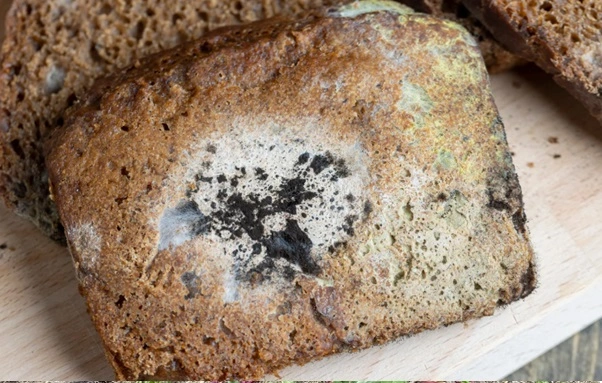
Treat Time with Peck Toys
If chickens were in the wild, they would spend most of their days pecking away to find food. You can make treat time mentally and physically stimulating by giving your flock peck toys. These toys encourage natural foraging as they mimic your flock’s instinctive foraging behavior while keeping them entertained and preventing boredom, which we all know can result in feather pecking or aggression.
They work by slowly dispensing chicken treats as your flock pecks away at them. Peck toys can be filled with grains, seeds, dried mealworms, or even small bits of chopped fruits and veggies. The advantage of peck toys is that they make your chickens work for their treats which prevents overeating and promotes exercise.
Additionally, these toy chicken treat dispensers are useful when chickens are confined to a coop or run when there is bad weather or free range is not possible. It gives your hens something to do and helps to reduce stress.
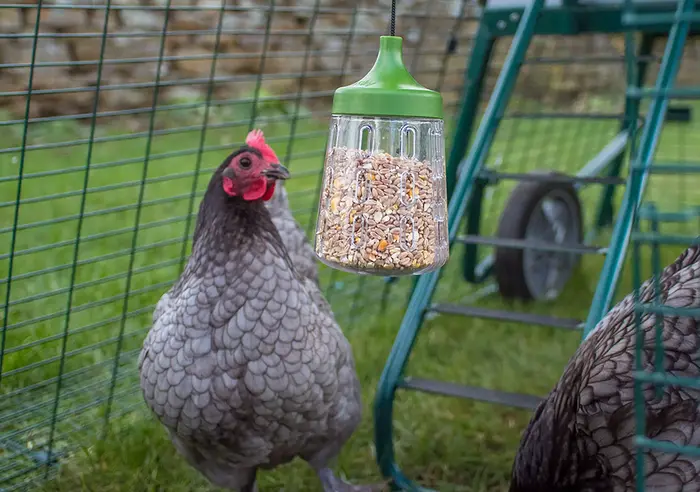
Top 10 Best Chicken Treats
Let’s take a closer look at the ten best chicken treats, in no particular order:
1. Dried Mealworms
Chickens go absolutely crazy for this protein-packed chicken treat. Dried mealworms also support feather growth and egg production, which is especially helpful during the molting season. You can order dried mealworms online or buy them at most farm or pet supply stores.
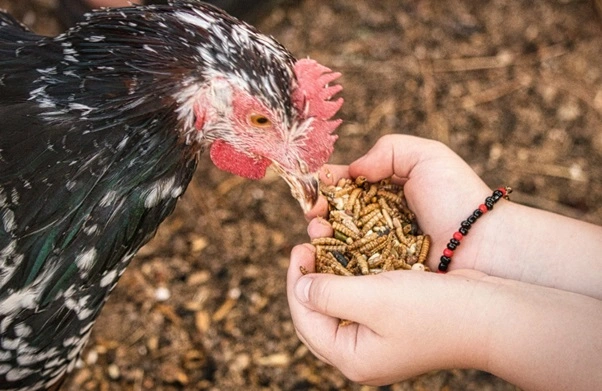
2. Fresh Greens
A great idea is to hang or chop up leafy vegetables, like kale, lettuce, and spinach in the coop. Also, you can feed your chickens the leaves around corn cobs, or half-eaten corn cobs from dinner. These tasty chicken treats might not sound good to you, but your chickens will love them. Fresh greens make a healthy addition to snack time!
3. Mixed Grains
If you are looking for variety, then consider making a mix of cracked corn, oats, barley, and wheat as a chicken treat. These grains are also part of their complete chicken feed, and giving a little extra will give your hens a little extra energy. Mixed grains are especially helpful during the colder months as they help your flock generate more heat to keep them warm. Also ready-made mixed grain treats are available.
4. Fruit Scraps
Feel free to give your chickens berries, banana peels, pears, apples without seeds, and more. Apple seeds have a compound called amygdalin, which turns into cyanide when digested. A few seeds here and there probably won’t hurt them, but eating too many over time could be dangerous. Best to just scoop the seeds out before tossing them an apple. Also, your hens can eat oranges in moderation but might not like the peels. Chickens are not a big fan of citrus fruits in general.
5. Cooked Eggs
It might seem odd, but chickens love eggs! Eggs are rich in essential amino acids, which are good for muscle and feather development. However, it is important to keep in mind that you must not feed your chickens raw or whole eggs with the shells still on, as this could teach them to eat their own eggs. Always make sure that the eggs are boiled and crushed, so that they become almost unrecognizable to your chickens.
6. Legumes
Legumes such as chickpeas and soybeans which are found in commercial poultry feed for added protein are a great chicken treat to give your flock. Always cook them first to inactivate any antinutritional factors that may impair digestion.
7. Sunflower Seeds
Sunflower seeds are high in healthy fats, which provide your flock with energy, and contain vitamin E, which promotes healthy skin and feathers. Sunflower seeds are a great addition to chicken treats during winter months when extra calories are needed. Both black oil and striped sunflower seeds are fantastic for chickens.
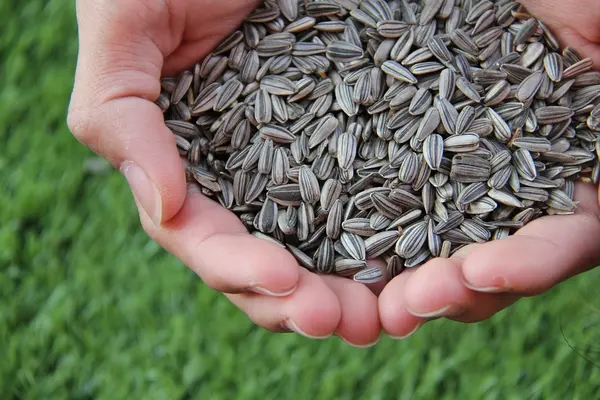
8. Bread
You can use stale bread as a chicken treat. This is an inexpensive way to give your flock a chicken treat, and they absolutely love it! Just make sure that it is not moldy, as it can make them sick.
9. Pumpkin and Squash
Give your chickens a vitamin A and C immune system boost with pumpkins and squash. You can offer it to them in raw chunks, mash them up, or bake them as an easy chicken treat. These foods are a great addition to your flock’s diet and also have natural deworming properties.
10. Watermelon
Chickens really like watermelon, which is especially beneficial during the hot summer months as it helps with hydration as they peck at the juicy flesh. Both the seed and the rind are perfectly safe for them to eat.
Final Thoughts
Giving your flock chickens treats is a fantastic way to enrich their environment and keep them fit and healthy. It is, however, important to remember that moderation is key and always follow the 90/10 rule. Additionally, bear in mind that chicken treats are there to complement their diet, rather than replace it. By choosing the best chicken treats and using them to provide your chickens with fun pecking activities, you are well on your way to raising content, feathery companions.
